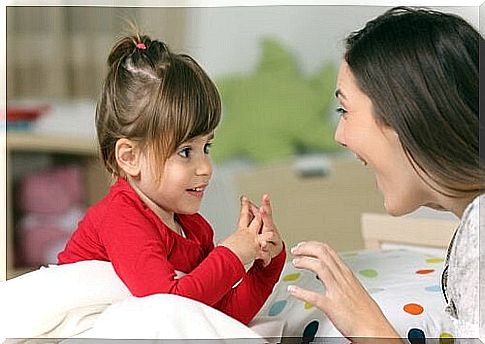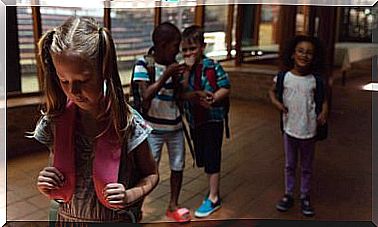Child’s Linguistic Development At The Age Of 0-6 Years

In the first years of a child’s life, he develops much faster than ever before. Children then develop basic physical, psychological and social skills. The linguistic development of 0-6 year olds is an indication of this rapid and profound change.
At this point in their lives, children have a natural tendency to learn. Therefore, early stimuli favor this development, and the surrounding family is key to progress.
The people around the child are of particular importance for linguistic development. In the language development of a 0-6 year old child, imitation has a major impact, so the patterns around him are crucial.
Stages of linguistic development of children aged 0-6 years
0-12 months
- This is the “pre-linguistic” phase. The child does not use words. It is a preparatory step for the language that is our mother tongue.
- The child still communicates with people. She cries if she is hungry or cold, or if she needs to change her diaper. She smiles socially as well as screams when demanding attention.
- There are a variety of cries and screams. A mother is able to interpret every message of her child, realizing whether the cry is due to hunger or cold, because they all have a different tone.
- At the end of this episode, the child tests their vocal cords. He jokes, learns to pronounce vowels and some consonants. The sounds “Ma” and “pa” that appear have nothing to do with the words “mamma” and “pappa,” but rather are variations of different sounds.
- Progress will continue gradually. At the end of this period, the child realizes that there is a relationship between him and her name. You should use simple words. He fully understands words that describe important functions. “Give me” and “take” are usually the first things a child understands.

12-24 months
- During this time, the child understands the commandments and follows them. He is able to use simple words. Usually, these are nouns that refer to objects.
- He communicates with words what he wants : “no,” “this,” “more”. He can combine two words, a noun and a verb. For example: “mother milk”. He completes the words with gestures especially when expressing what he wants.
- As he develops, he is already able to play simple songs.
- There are children who at the end of this stage have a good vocabulary and understanding of linguistic structures. This development depends to a large extent on the incentives a child receives from his or her environment.
2-6 years
- If a child’s development has been normal, he or she will have a fully developed linguistic skill by the age of two. She expresses herself naturally and fluently and can communicate exactly what she wants.
- He may still have trouble pronouncing certain consonant groups, but this problem will disappear with practice. If it persists, it is recommended that you contact an expert. This can suggest strategies to help the child solve potential problems at an early stage.
- At the age of 4, the basic language collection is complete. The child is able to combine words into simple sentences. Sentences gradually become more complex and structured.
- The level of understanding has also improved.

- If interactions with books have begun during this development, the child will begin to take an interest in the written language. He realizes that letters form messages. It is time to teach her the letters that make up her name, as well as the words that matter to her, such as “mother” and “father”. Approach this task in the form of a game so that he gets a good start on the literacy path.
- When he has a storybook in his hand, your child will often ask, “what is being said here?”. This question shows that he understands stories to be made up of words.
Encouraging the linguistic development of children aged 0-6
You can help your child internalize language understanding and use with a few simple and mundane tasks.
Here are some tips:
- Ask her to use language to express what she feels and what she wants.
- Answer words, don’t gestures when he asks for something.
- Teach him songs, rhymes, and poems.
- Read him long stories.
- Talk to your child without using childish words.
It is important not to underestimate a child’s linguistic capacity and remember that he or she understands much more than he or she can speak.









